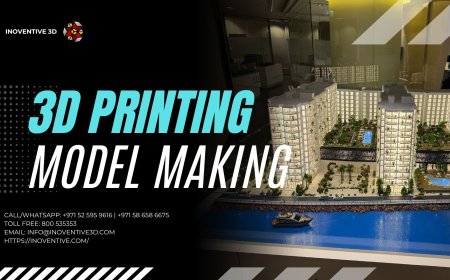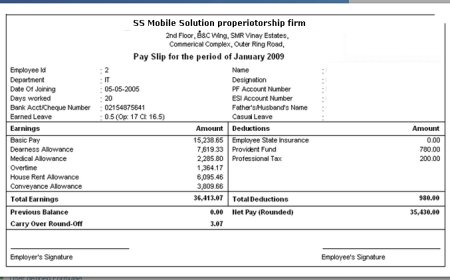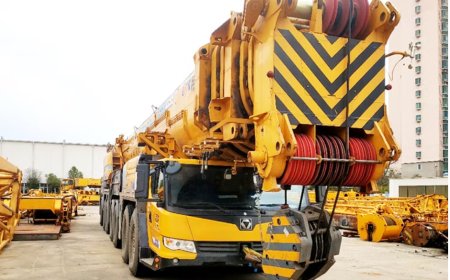5 Signs You Need a Warehouse Instead of a Storage Unit
Not sure if a storage unit is enough? Discover 5 clear signs you need a warehouse instead. Learn the key difference between storage and warehouse solutions to make the right choice for your growing needs.

As your business or personal needs grow, so does your need for extra space. While self-storage units are a popular choice for many, they aren't always the best fitespecially when your inventory or operations become more complex. If you're wondering whether it's time to upgrade your space, this guide will help you recognize the key signs that a warehouse may be a better solution.
Understanding the difference between storage and warehouse services is crucial. While both provide extra space, they differ significantly in purpose, functionality, and benefits. Let's explore the five signs that indicate it's time to move beyond a traditional storage unit and invest in a warehouse.
1. Youre Running Out of Space in Your Storage Unit
If your current self-storage unit is overflowing, you're stacking boxes dangerously high, or you're renting multiple units just to fit your goodsits a clear signal youve outgrown the space.
Storage units are designed for personal items or limited business inventory. They're ideal when you have seasonal items, documents, or small product batches. However, once your needs expand to include large equipment, pallets of goods, or high-volume inventory, a warehouse becomes a more suitable solution.
Why It Matters:
A warehouse offers scalable space, high ceilings, and layout flexibility to support your growing inventory without compromising safety or accessibility.
2. You Need More Than Just StorageYou Need Logistics
One of the biggest differences between storage and warehouse services is logistics. A storage unit gives you spacebut you have to manage everything yourself. This includes organizing, tracking, retrieving, and transporting items.
Warehouses, on the other hand, often provide value-added services such as:
-
Inventory management systems
-
Packing and shipping
-
Order fulfillment
-
Staff support and equipment handling
If your operations involve order processing, frequent stock movement, or complex supply chains, a warehouse streamlines these tasks and saves you valuable time.
Example:
An online seller may start by storing products in a self-storage unit. But as sales grow, managing packing and shipping becomes overwhelming. A warehouse can take over these tasks, allowing the business owner to focus on growth.
3. You Require Better Security and Access Control
Storage facilities typically offer good security measures, including surveillance cameras, gated access, and individual locks. However, they are mostly self-managedyou are responsible for locking your unit and monitoring your inventory.
Warehouses provide higher-level security and access control, including:
-
On-site staff and restricted access zones
-
Barcode/RFID inventory tracking
-
Real-time monitoring and professional oversight
-
Insurance coverage for high-value goods
If your inventory is valuable, sensitive, or frequently targeted (electronics, luxury goods, medical supplies), a warehouse offers peace of mind with professional-grade protection.
4. Your Business Has Outgrown Manual Tracking
Are you still using spreadsheets to manage your inventory? Do you struggle to locate items or keep up with restocking levels? Thats a sign you need a system, not just a space.
A core difference between storage and warehouse solutions is that warehouses often include inventory management technology, such as:
-
Barcode scanning
-
Inventory software integration
-
Automated stock alerts
-
Real-time stock visibility
This helps reduce errors, improve accuracy, and ensure your operations run smoothlyespecially during peak seasons or rapid growth.
5. You Have Complex Shipping or Receiving Needs
If you're receiving frequent shipments, managing returns, or need to coordinate deliveries to customers or retailers, a storage unit will quickly fall short. Self-storage units are not designed for high-traffic logistics and often lack:
-
Loading docks
-
Forklifts or pallet jacks
-
Professional staff to handle shipments
A warehouse is built for precisely this. It includes:
-
Large loading/unloading areas
-
Equipment for handling heavy items
-
Staff trained in shipping, receiving, and returns
This ensures faster turnaround, better organization, and fewer shipping errorskey advantages for scaling businesses.
Recap: Storage Unit vs. Warehouse Whats the Difference?
To reinforce the difference between storage and warehouse setups, heres a quick comparison:
| Feature | Storage Unit | Warehouse |
|---|---|---|
| Primary Use | Personal or small business storage | Commercial storage and logistics |
| Management | Self-managed | Professionally managed |
| Services Included | Space only | Inventory, shipping, fulfillment, and more |
| Access | You manage access | Staff-controlled and secure |
| Scalability | Limited to unit size | Highly scalable, adaptable spaces |
| Technology Support | None | Often includes inventory management systems |
Final Thoughts
If youve noticed any of these five signslack of space, growing logistics needs, security concerns, manual inventory headaches, or complex shipping requirementsits probably time to move on from your current storage unit. A warehouse isnt just a bigger space; its a complete solution designed to support business growth, improve operational efficiency, and ensure long-term scalability.
The difference between storage and warehouse solutions lies in the level of support and functionality they provide. For personal use or small-scale storage, a self-storage unit is often enough. But for business operations that require reliability, efficiency, and integrated services, a warehouse is the smarter investment.
Need Help Finding the Right Storage Solution?
At Suggest Movers, we help businesses and individuals choose between storage units and warehousing facilities based on their specific needs. Contact us today for expert advice tailored to your situation.






































